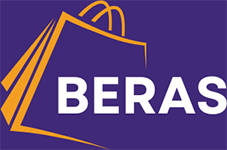The Baltic Ecological Recycling Agriculture and Society (BERAS) initiative stands as a visionary project that sought to address the pressing ecological and agricultural challenges faced by the Baltic region. Focusing on sustainable farming, ecological resilience, and the creation of sustainable food systems, BERAS emerged as a multi-faceted framework to reconcile agricultural productivity with environmental preservation. At its core, the initiative aimed to tackle nutrient runoff and eutrophication in the Baltic Sea, while simultaneously promoting a harmonious relationship between agriculture and society.
Originating from the need to transform conventional farming systems, BERAS became a beacon of innovation for the entire Baltic region. It emphasized the adoption of Ecological Recycling Agriculture (ERA), sustainable food systems, and community engagement as central pillars to address these challenges. The project highlighted the interconnectedness of agriculture, environmental health, and human well-being, striving to create a model that could be adapted to other regions globally.
Key Pillars of BERAS
- Ecological Recycling Agriculture (ERA):
BERAS championed ERA as its foundational approach to farming. Unlike conventional agriculture, which often relies heavily on synthetic inputs, ERA focuses on closing nutrient cycles within the farm system. By recycling organic materials such as crop residues and animal manure, this method reduces nutrient losses to the environment, enhances soil fertility, and promotes biodiversity. ERA integrates crop diversification, livestock management, and natural pest control, fostering a resilient ecosystem capable of withstanding environmental stresses while maintaining productivity. - Sustainable Food Systems:
BERAS recognized that sustainable agriculture is only one part of the equation; equally important is the establishment of food systems that connect farmers and consumers in mutually beneficial ways. The initiative worked to foster local food networks where food is grown, processed, and consumed within the same region. This reduces food miles, lowers greenhouse gas emissions, and supports rural economies. BERAS also encouraged organic consumption, advocating for food choices that align with ecological principles. - Education and Knowledge Sharing:
A cornerstone of BERAS was its commitment to education and outreach. Farmers, policymakers, researchers, and the general public were invited to participate in workshops, training sessions, and pilot projects. These platforms provided practical demonstrations of sustainable techniques and facilitated knowledge exchange among stakeholders. The educational initiatives ensured that the principles of BERAS were not only theoretical but actionable and adaptable to local contexts. - Regional and International Collaboration:
The Baltic region, comprising diverse landscapes and shared ecological challenges, was an ideal testing ground for BERAS. The project brought together stakeholders from multiple countries, fostering cross-border collaboration. This regional cooperation created a robust network that extended its influence beyond the Baltic, inspiring global initiatives for sustainable agriculture and food systems.
Goals of BERAS
The BERAS initiative was built on a comprehensive set of goals aimed at addressing both regional and global challenges in agriculture and sustainability:
- Combat Environmental Degradation: Reduce nutrient runoff from agriculture to mitigate eutrophication in the Baltic Sea.
- Empower Farmers: Provide tools, knowledge, and support to transition toward ecological and sustainable farming practices.
- Promote Biodiversity: Encourage farming techniques that support natural habitats and enhance the ecological balance.
- Support Rural Economies: Strengthen local food systems to create economic opportunities and reduce reliance on imported goods.
- Foster Climate Resilience: Develop agricultural systems capable of adapting to changing climate conditions while reducing carbon footprints.
| 🌟 Aspect | 🌍 Details |
|---|---|
| 🔄 Core Focus | Ecological Recycling Agriculture (ERA): Closed nutrient cycles and reduced synthetic inputs |
| 🐟 Environmental Concern | Eutrophication in the Baltic Sea: Caused by nutrient runoff from agriculture |
| 🌾 Agricultural Method | Sustainable Practices: Crop diversification, natural pest control, and integrated livestock |
| 🛒 Food Systems | Local Networks: Strengthening local food economies, reducing food miles, and promoting organic |
| 🎓 Education Efforts | Workshops & Training: Spreading practical knowledge to farmers, policymakers, and communities |
| 🤝 Collaboration | Cross-Border Efforts: Multinational partnerships across the Baltic and beyond |
| 🌱 Long-Term Impact | Global Influence: A legacy of sustainable practices influencing worldwide initiatives |
The Legacy of BERAS
Although the formal BERAS project has concluded, its principles continue to guide sustainable agriculture and food systems worldwide. The establishment of the BERAS International Foundation ensured that the project’s outcomes would remain relevant and adaptable to new contexts. The concepts of ecological recycling agriculture, sustainable food networks, and community engagement have since been integrated into various global sustainability initiatives, cementing BERAS as a transformative force in agricultural innovation.
Today, the BERAS legacy is reflected in efforts to combat climate change, enhance biodiversity, and build resilient food systems. Its holistic approach serves as a model for balancing the needs of humanity with the demands of the natural world. As the world continues to grapple with ecological crises and food security challenges, BERAS offers a roadmap for creating a sustainable future through the power of collaboration, education, and innovation.
